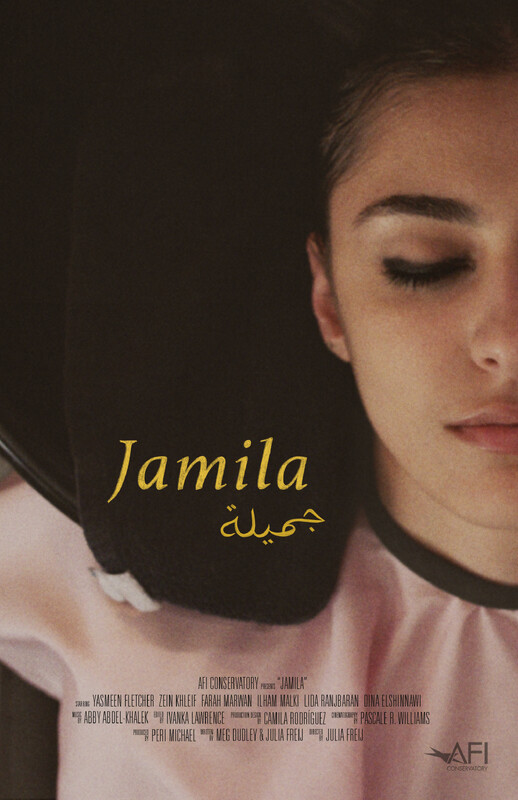Jamila
Film Screening & Ticket Information
When & Where to See this Film!
FAMILY BUSINESS: 7 films about blood and traditions.
April 23, 2024 @ 7:00PM • Kaufman Astoria Studios – Zukor Theatre
Film Bloc Line Up:
View the Trailer
Synopsis
While reluctantly preparing at a beauty salon for a wedding, a Palestinian American teenager clashes with her family members, challenging her assumptions about culture and femininity.
***
In this coming of age drama set in the mid-2000s, NOUR, 16, a Palestinian American girl, must rediscover her multicultural identity after years of repressing her background and growing up among western standards of beauty. Nour visits Palestine to attend a family wedding, meeting some of her relatives for the first time. On the morning of the ceremony, she begrudgingly accompanies her aunties to the salon to get ready. Guided by her aunt MONA who resents Nour’s single father for leaving, Nour is overwhelmed among the new and eclectic mix of family members. She soon finds role models in her female relatives, who inspire her to embrace herself. In one morning, Nour navigates culture and belonging, finally accepting herself and her identity.
Credits
Julia Freij, Director
Julia Freij, Writer
Meg Dudley, Writer
Peri Michael, Producer
Yasmeen Fletcher, Key Cast, “Nour”, Ms. Marvel, Let Us In, Upside Down Magic, Andi Mack
Zein Khleif, Key Cast, “Mona”Mo
Director Statement
When I was young, I didn’t know where I belonged, or even what belonging felt like. I was constantly unsure of how to move through my small Utah world. A lot of kids experience bullying, but the scars of what others said to me lingered into adulthood. I was teased for my ‘frizzy’ hair, taunted for my ‘hairy arms’, and laughed at for my ‘mustache’ and ‘bushy eyebrows’. All these parts of myself came from my Palestinian heritage, which I knew very little about and deemed to be another negative way for me to stand out.
Western beauty standards really got into my head. To fit them would mean I’d have to change. Changing oneself is a lot of work– it takes maintenance. Maintenance I didn’t see my peers having to do to meet those same standards. I began to resent the parts of myself I felt took too much work, becoming angry at my body for the way I was born. It seemed like endless effort just to feel some marginal sense of belonging. There was something missing though, which was the truth: I belong between worlds.
When I traveled back to Palestine for the first time, I felt a sense of belonging that had forever been elusive. Being around other Arab women felt right. I didn’t stand out visually, and for the first time, I felt I was with my people. There was still a gap in my understanding of who ‘my people’ were, though, and in the back of my head, I still didn’t feel like I belonged, not really. It took opening up about my pain to other women to gain a genuine sense of acceptance. Learning to love myself coincided with learning more about my culture and femininity. They are two things I hold very close to my heart, and now I want to show the beauty of my culture with pride. My hope is to talk about Palestine through human interaction and family, not focusing on our strife, but on what our strife is fighting to preserve.
Director Biography
Julia Freij is a Palestinian American Director originally from Salt Lake City, Utah. She has written and directed short films and a music video. She is a 2nd year Directing fellow at the American Film Institute Conservatory. She is a highly independent filmmaker who channels her experience as a bi-cultural woman to give voice to the often unheard and to elicit the empathy that exists even within often hidden humanity. Her stories place women at the forefront focusing on the trials and tribulations that come with learning how to own one’s femininity.


